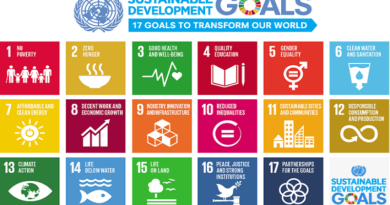Cameroon sets to release water from Lagdo dam
Authority of the Lagdo dam in Cameroon has said that the dam management will begin regulated water releases at the rate of 100m% (8,640,000m/day) from the dam.
This was conveyed in a statement on Tuesday 17 September 2024 by the Nigeria Hydrological Services Agency (NIHSA), signed by its Director General, Umar Ibrahim Mohammed, to inform the general public on the development.
According to NISHA, the water release is expected to increase gradually to 1000m% in the next 7 days depending on the inflow from the upstream Garoua River which is the main feeder into the reservoir and a major contributor to the Benue river.
However, the dam managers further stated that the planned water releases will be gradual so as not to exceed the conveyance capacity of the Benue river system and cause major flooding downstream Nigeria.
The spilling of waters from Lagdo dam is expected to stop as soon as there is noticeable decrease in flow into the Lagdo reservoir.
The Agency hereby wishes to state that there is no cause for alarm as major flooding are not expected downstream Nigeria as the flow levels along the river Benue are still within the warning levels.
Notwithstanding, it is highly imperative for all states that are contiguous to the river Benue system, namely: Adamawa, Taraba, Benue, Nasarawa, Kogi, Edo, Delta, Anambra, Bayelsa, Cross-Rivers and Rivers; the government at all levels (Federal, State and LGAs) to step up vigilance and deploy adequate preparedness measures to reduce possible impacts of flooding that may occur as a result of increase in flow levels of our major rivers at this period.
The Agency will continue to monitor closely the flow situation of the transboundary river Benue and the national inland rivers and steadily provide regular updates on water levels across major rivers to forestall further flood disasters.
In the last few weeks, several states in Nigeria have been experiencing devastating flooding including Maiduguri, Borno State capital where several people have been displaced from their houses and means of livelihood.




